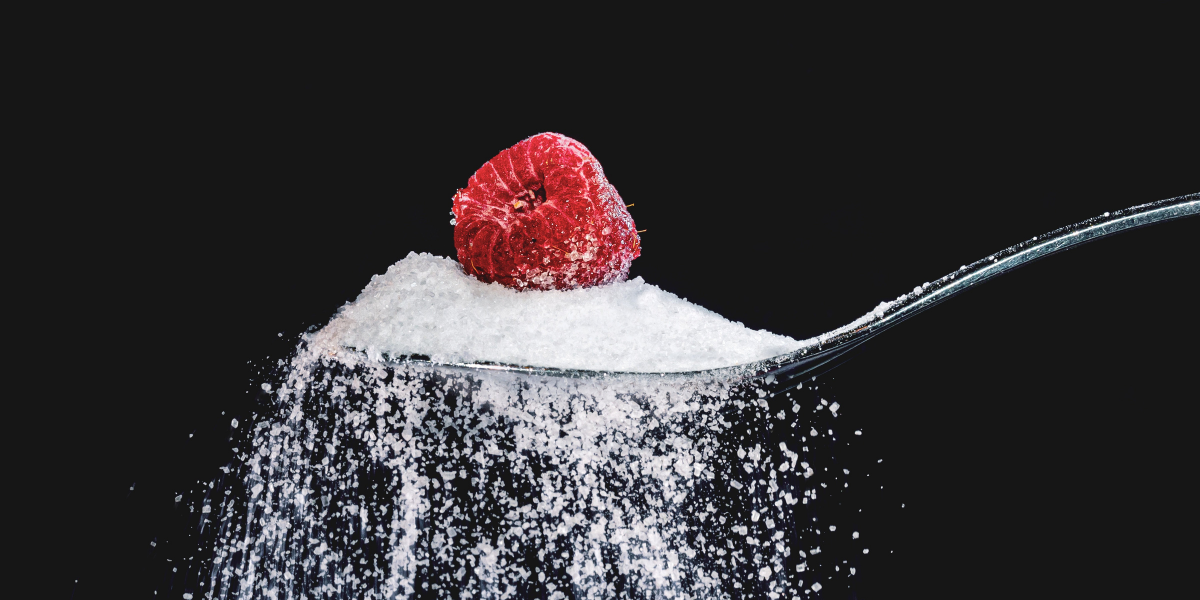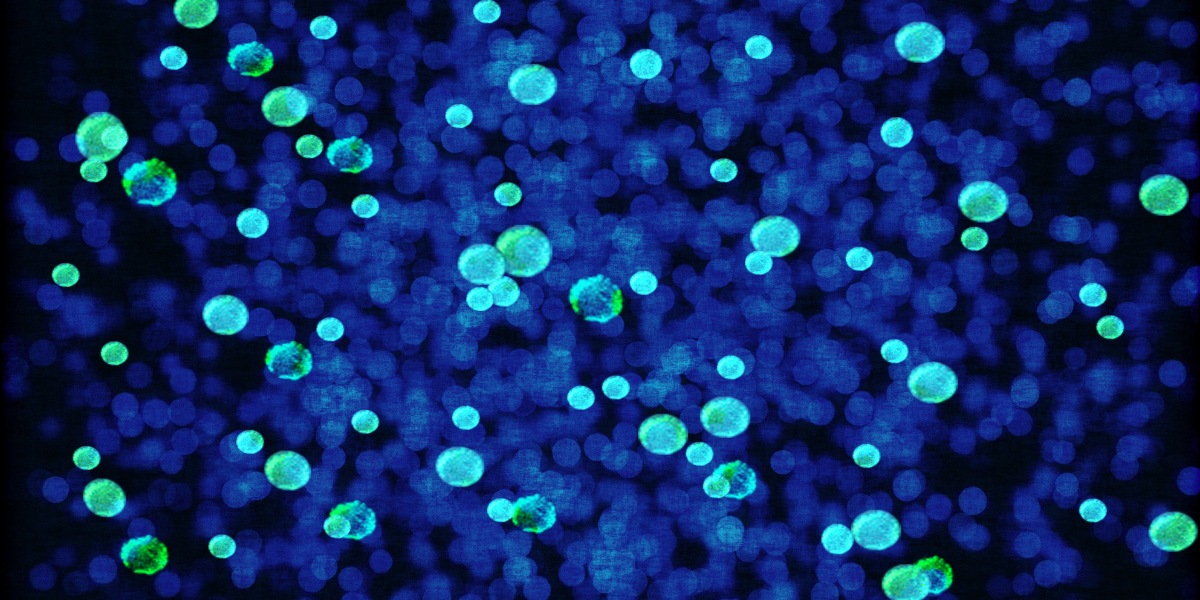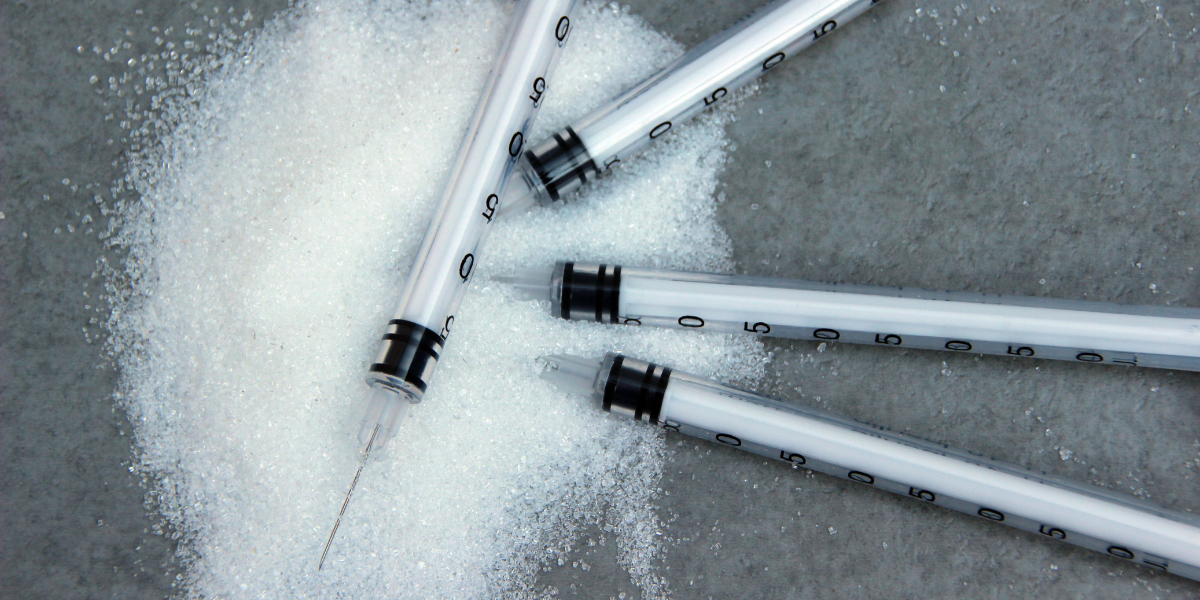Saccharin is an artificial sweetener that is often used as a sugar substitute. Saccharin is around 300 to 400 times sweeter than table sugar (sucrose) so a small amount is enough to give you a sweet taste. This non-nutritive sweetener is one of the six approved by the US Food and Drug Administration (FDA) and an approved food additive in most countries worldwide.
Saccharin is also one of the most intensely studied food ingredients as there have been questions about how safe it is. This can be overruled by the fact that over 30 studies have been organized and completed about the safety of saccharine for human consumption. But can saccharine cause diarrhea? Probably, and we will be discussing why in a bit.
Saccharin: Background Info

Saccharin is considered to be the world’s oldest artificial sweetener, having been used for this purpose for over 100 years. It was first discovered in the labs of John Hopkins University in 1878 by resident Russian chemist Constantin Fahlberg who was then researching sugar impurities.
Fahlberg was experimenting with various products derived from coal tar when he had to hurry home to dinner and forgot to wash his hands. While eating, he noticed that the food and drink that he had touched were unusually sweet and, after tasting his thumb, ran back to the lab to work on his new discovery ‘coal tar sugar’ which he named ‘saccharin’.
However, it was only in the ‘60s and ‘70s that saccharin started to be popular as a sugar substitute. It is available in tablet, granulated, and liquid form. If you’re not that familiar with the term ‘saccharin’, then you must surely have heard – and probably bought – its popular brand names Sweet ‘N Low, Sugar Twin, and Necta Sweet.

To give you an idea of the contents of saccharine, here are the nutrition facts of a 1-gram packet of Sweet ‘N Low Zero Calorie Sweetener with the respective percentages of the daily value. Each packet of Sweet ‘N Low contains 36 milligrams of saccharin and has the sweetness equivalent of 2 teaspoons of sugar:
Calories 0 (0%)
Total Fat 0g (0%)
Cholesterol 0mg (0%)
Sodium 0mg (0%)
Total Carbs 0.5g (0%)
Protein 0g (0%)
Vitamin D 0mcg (0%)
Calcium 0mg (0%)
Iron 0mg (0%)
Potassium 0mg (0%)
Vitamin A 0mcg (0%)
Vitamin C 0mg (0%)

Saccharin is an artificial sweetener that does not contain nutrients but is one of the ingredients used in the production of a variety of low-calorie sugar-free food products including:
- Baked goods
- Chewing gum
- Jelly
- Jams
- Canned fruit
- Candy
- Salad dressings
- Dessert toppings
- Diet drinks
- Soda and other carbonated drinks
Saccharin may also be found in medicines, vitamins, and cosmetic products such as toothpaste and mouthwash. But how much saccharin can you eat without risk? The FDA states that children and adults can safely consume up to 2.3 mg of saccharin per pound or approximately 5 mg per kg of body weight. To get your weight in kilograms, divide it by 2.2 which is the equivalent of pounds per kilogram.
Aside from being one of the most affordable low-calorie sweeteners available, people use saccharin primarily to maintain overall health or improve their physical appearance. Saccharin is especially important to those who need to limit their caloric or carbohydrate intake due to existing medical conditions such as diabetes or obesity.
Here are some of the benefits of saccharin:
- Can be mixed with other sweeteners
- Regulates blood sugar levels
- Aids in weight loss
- Helps reduce cavities
- Does not contain calories
- Has a very low carbohydrate content
Can Saccharin Cause Diarrhea?
Saccharin may have some beneficial effects but let us also consider the downside that it is bound to have. Can saccharin cause diarrhea? Yes, it can and there are 4 probable reasons which will be discussed in more detail.
-
Saccharin has a laxative effect.

Artificial sweeteners are synthesized sugar substitutes that are intended to replace sugar, plus they don’t contain calories or carbs. And this is also the reason why they can cause diarrhea.
Saccharin is categorized as a non-nutritive sweetener (NNS) because no calories can be gained from ingesting them. Furthermore, consuming NNS in large amounts may lead to gastrointestinal issues.
A large percentage of NNS, which in this case, is saccharin, passes through the GI tract without being metabolized. It acts as an osmotic laxative absorbing water from the surrounding tissues to soften the stool and make it easier to defecate. However, things may go overboard and cause diarrhea instead.
Moreover, the laxative properties of sugar substitutes are further enhanced when they are paired with other triggering foods. For example, coffee mixed with a sugar-free sweetener may cause you to visit the bathroom in a hurry!
-
Saccharin can disrupt the balance of gut microbiota.

According to a study performed by the Ben Gurion University of the Negev in Israel, artificial sweeteners may promote the progression of chronic digestive diseases such as irritable bowel syndrome (IBS). Some symptoms of IBS include diarrhea, constipation, abdominal pain, bloating, and flatulence.
Published in the International Journal of Molecular Medicine in October 2021, the study involved testing 6 FDA-approved artificial sweeteners and discovering that 3 of them, namely saccharine, aspartame, and sucralose, may disrupt the balance of gut microbiota.
Apparently, while none of them actively eliminated the bacteria, these artificial sweeteners significantly impaired the routine communication between bacteria and disturbed the stability of the gut microbiota.
Professor Ariel Kushmaro who was one of the leaders of the BGU research says, “The FDA should certainly look into the use of sweeteners which are widespread in everything ranging from baked goods to sugar substitutes.”
-
Saccharin may be difficult to digest.

Saccharine is considered to be a no-calorie sweetener because our body is unable to break it down. During digestion, saccharin passes through the GI tract basically unchanged which means that, although it provides a sweet taste, no calorie was derived from it.
Sugar, on the other hand, is broken down during the digestive process and provides calories to the body as a result.
In addition, the undigested remnants of the sugar substitute saccharin may gather in the colon and trigger the intestine to secrete more water in order to dilute the residue which leads to diarrhea.
-
Saccharin can cause allergic reactions.

Saccharin is a compound of sulfonamide which is a group of medicines that is used to treat a variety of bacterial infections, including urinary tract infection (UTI), inflammatory bowel disease (IBD), and other conditions.
However, sulfonamides can trigger allergic reactions in some people who cannot tolerate sulfa drugs, and these include:
- Diarrhea
- Headaches
- Skin problems
- Breathing difficulties
For this reason, infants, children, and pregnant women are advised to limit their intake of saccharin. Moreover, saccharin leaves a bitter metallic aftertaste which is particularly noticeable at higher concentrations. To mask the taste, substances may be added or saccharin may be combined with other artificial sweeteners such as cyclamate or aspartame.
If you are starting to get tired of all the stomach cramps and frequent visits to the toilet, try to eat bland foods that are easy on the stomach and fiber-rich foods that help with diarrhea.
The Bottomline

There are varying opinions on whether the benefits of artificial sweeteners such as saccharin outweigh the side effects. Many people worry about potential health issues that are as yet undiscovered until longer-term studies can be done. But for those with diabetes or weight problems who would otherwise have had to endure a limited meal plan, saccharin allows them to be more flexible in their food choices.
But can saccharin cause diarrhea? Yes, it can and it is up to you to decide whether the possible digestive discomforts are manageable enough to continue enjoying the benefits of this sugar substitute.

